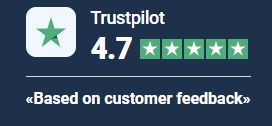Plagiarism remains a serious concern in the academic world, and the rise of online essay writing services has intensified the debate surrounding its prevalence. This article critically examines the question, “Is BookWormLab Plagiarism?” as BookWormLab stands out as a prominent platform providing academic writing assistance to students. Given its widespread usage, it becomes imperative to assess whether the company adheres to rigorous standards of originality and ethical practices in an academic setting.
Overview of BookWormLab
At the core of BookWormLab operations lies its digital platform that connects students with professional writers capable of crafting customized essays, research papers, and various academic documents. The platform boasts a user-friendly interface and boasts an extensive pool of writers, making it highly appealing to students seeking academic support. Nonetheless, the convenience offered by such services has sparked concerns about potential implications on students’ learning experiences and the propensity for plagiarism.

Plagiarism and its Consequences
Plagiarism, in its essence, entails the act of presenting someone else’s intellectual work, ideas, or expressions as one’s own without due acknowledgment or attribution. The ramifications of plagiarism are profound, as it strikes at the very core of academic integrity and honesty. Students found guilty of plagiarism may face severe repercussions, including academic penalties, reputational damage, and even legal consequences. Consequently, it is essential to delve into the ethical implications of plagiarism, particularly in the context of utilizing essay writing services like BookWormLab .
BookWormLab Approach to Plagiarism
BookWormLab vehemently claims to have stringent anti-plagiarism policies and takes pride in providing unique and authentic content to its clientele. The company asserts that its team of writers is obligated to deliver original work for each assignment and strictly avoid any form of academic dishonesty. To bolster quality control and avert plagiarism instances, BookWormLab may employ plagiarism detection tools and implement comprehensive quality assurance protocols.
Our experience and expertise shows that the company does not deceive in this regard. The ordered works were completed without any plagiarism
Cases of Plagiarism and Criticism
Despite BookWormLab’s assurances and efforts, there have been isolated cases where customers have received plagiarized documents. Such cases have led to criticism of the company’s commitment to effectively combating plagiarism. We don’t know if these reviews are authentic or if they are malicious competitors who want to tarnish BookWormLab company’s reputation.

Perspectives and Recommendations
To effectively tackle the issue of plagiarism, BookWormLab should consider augmenting its plagiarism detection mechanisms and conduct regular audits of their writers’ work. Instituting mandatory plagiarism checks for each delivered assignment can bolster the company’s reputation and engender trust among its users. Moreover, BookWormLab ought to furnish comprehensive guidelines and educational resources to conscientiously educate students about plagiarism and its far-reaching consequences, thereby cultivating a culture of academic honesty and responsible writing practices.

Conclusions
In conclusion, we can confidently say that the BookWormLab is not plagiarized. To strengthen its stance against plagiarism and regain the trust of its stakeholders, BookWormLab must proactively address and prevent any plagiarism-related issues on its platform. By taking these proactive steps, the company can maintain its reputation as a responsible academic writing service and foster a culture of academic honesty and integrity in the wider educational field.

